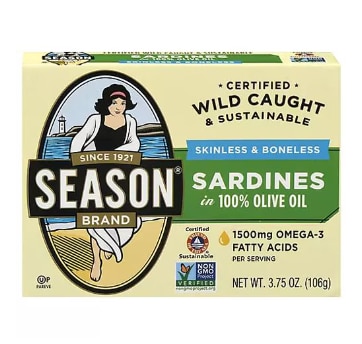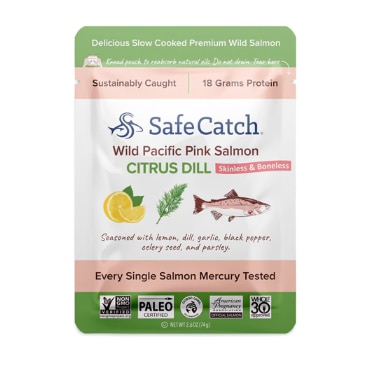Recent research casts further doubt on whether fish oil improves heart health. But that’s no reason to ditch your fish oil supplements. Why? Because some evidence points to other benefits of fish oil.
Is fish oil good for your heart?
A study published in May 2024 by the research journal BMJ Medicine found that regularly taking fish oil supplements may heighten the risk of atrial fibrillation (A-fib), a type of irregular heartbeat, and stroke. But at the same time, researchers concluded that fish oil supplements might slow the advancement of cardiovascular disease from the A-fib stage to serious heart damage or even death.
The study’s authors acknowledge that more research is needed to clarify the potentially beneficial relationship between fish oil supplements and heart damage.
For the time being, though, this study adds to a growing collection of research indicating that fish oil supplements hold little, if any, promise for enhancing heart health.
“Many people believe that fish oil supplements are somehow beneficial for their heart. Unfortunately, research does not back that up,” according to UT Southwestern Medical Center. “Multiple randomized trials have compared fish oil supplements with placebo to look for cardiovascular benefit — and found nothing.”
What are the benefits of fish oil?
In the scientific and medical communities, debate continues to rage about whether fish oil supports heart health. While many experts dismiss the likelihood of heart health benefits from fish oil, some researchers offer a bit of hope.
For example, Harvard Health Publishing cites a study published in 2018 in the New England Journal of Medicine. It showed that omega-3 fatty acid supplements, including fish oil supplements, did nothing to reduce heart attacks, strokes or heart disease deaths in middle-age men and women who didn’t have any known risk factors for heart disease.
“However, when researchers looked at subgroups of people who don’t eat any fish, the results suggested they may reduce their cardiovascular risk by taking a fish oil supplement,” says Harvard Health Publishing.†
Furthermore, research suggests fish oil may offer relief for discomforts related to rheumatoid arthritis and lupus, especially inflammation.†
Also, fish oil has been shown to support healthy triglyceride levels (a type of fat found in your blood) and blood pressure.† High triglyceride levels may increase the risk of heart attack, heart disease and stroke, according to the Mayo Clinic. Meanwhile, high blood pressure can lead to conditions such as heart disease, stroke and dementia.
How do you choose a fish oil supplement?
When you’re shopping for a fish oil supplement:
- Look for EPA (eicosapentaenoic acid) and DHA (docosahexaenoic acid), the two main omega-3 fatty acids in fish.
- Buy only those supplements that are tested and certified by ConsumerLab.com, NSF International or United States Pharmacopeia (USP). The U.S. Food and Drug Administration (FDA) does not assure the safety or effectiveness of dietary supplements.
- Pick one that’s free of heavy-metal contaminants.
Generally, women should limit their fish oil intake to 1,100 milligrams per day in capsule, liquid or pill form.† For men, the high mark is 1,600 mg per day.† Those are just guidelines, though. Check with your health care provider regarding which amount of fish oil intake is right for you.
What are some alternatives to fish oil?
If you believe you should add fish oil supplements or other sources of omega-3 fatty acids to your regimen, it’s wise to consult your health care provider before doing so. Instead of fish oil supplements, your provider might recommend consuming:
Harvard Health Publishing says these fish oil alternatives can help overcome an omega-3 deficiency in your diet.
Another substitute for fish oil supplements — one that’s ideal for vegetarians and vegans — is algal oil , which is derived from marine algae. A study published in 2015 in the Journal of Functional Foods declared that algal oil supplements are a “viable alternative” to fish oil supplements.
What are the health benefits of eating fish?
Experts routinely hail the health benefits of adding fish to your diet, rather than relying solely on fish oil supplements.
As the Washington State Department of Health explains, fish is chock-full of omega-3 fatty acids. That’s particularly true for fatty fish such as salmon, trout, sardines, herring, canned mackerel, canned light tuna and oysters. Omega-3 fatty acids — in the form of EPA and DHA — contribute to heart and brain health.
The American Heart Association recommends eating two servings of fish (particularly fatty fish) each week. A serving is 3 ounces of cooked fish or about ¾ cup of flaked fish.
Aside from omega-3 fatty acids, which our bodies don’t produce, fish is a source of:
- High-quality protein
- Vitamin D
- Vitamin B2
- Calcium
- Phosphorous
- Iron
- Zinc
- Magnesium
- Potassium
†These statements have not been approved by the Food and Drug Administration. These products are not intended to diagnose, treat, cure or prevent disease.




